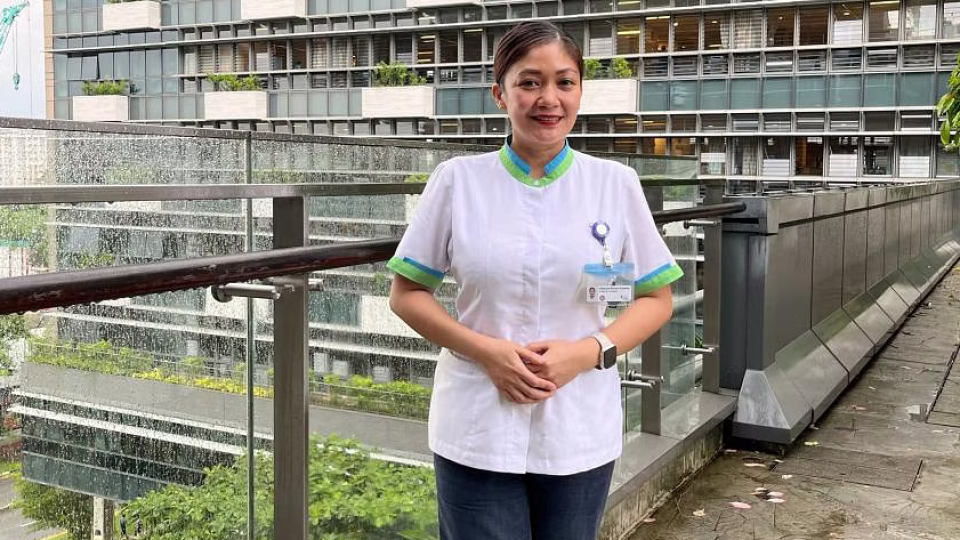December 14, 2023
SINGAPORE – Three months ago, a patient threatened to strip Ms Marisol Zabellero Villabrille, a healthcare assistant at Khoo Teck Puat Hospital.
She had to accompany him into the toilet as intensive care unit patients are not allowed to use the washroom by themselves. But he was uncomfortable with her presence and grew increasingly agitated.
After the patient’s threat was issued, a colleague nearby intervened on her behalf and “scolded” the patient, and the hospital’s security team arrived quickly to de-escalate the situation by taking the patient back to his bed.
“I was so shocked,” said Ms Villabrille. “I really didn’t expect him to say those words to me.”
This was her first time experiencing such abuse since coming to Singapore from the Philippines in August 2021, and it stunned her.
The hospital’s management was also alerted to the incident and the patient was given a verbal warning.
Ms Villabrille said support from her colleagues, supervisors and even the security team helped her to recover.
A 2022 survey conducted by the Ministry of Health (MOH) found that only one in four healthcare workers who experienced abuse in the 12 months preceding the survey reported the incidents.
On March 13, the Tripartite Workgroup for the Prevention of Abuse and Harassment of Healthcare Workers also reported that 39 per cent of the more than 3,000 healthcare workers it surveyed did not consider sexual requests and remarks as abuse or harassment.
Following its initial report, the tripartite workgroup launched a framework to protect healthcare workers from abuse on Dec 13. This framework sets out a common definition of abuse and harassment and standardised protocols to respond to incidents of abuse from patients or their families and visitors.
Ms Villabrille said she hopes the framework will encourage healthcare workers to be more confident in standing up against abuse and reporting cases.
Dr Gillian Lim, chief of central region at the Institute of Mental Health, said the framework is a good first step in highlighting abuse and harassment of healthcare workers.
She said this can be followed by measures to make the reporting process more accessible to staff, who have had to make reports on their own time outside of office hours, or physically at a police station, which can be traumatic after the abuse they experienced.
“We’re also humans. We sacrifice our sleep, our meals, our personal lives, our holidays, our mental health to try to make the system work,” she said, calling for respect for healthcare workers.
Dr Lim, who is also a consultant in general psychiatry and in the institute’s department of mood and anxiety, said she has experienced abuse on multiple occasions in her line of work.
She recounted how, in 2019, she was carrying out routine morning reviews with her team in the male inpatient ward, when she encountered a patient who became aggressive because he could not be discharged that day.
He began “hurling verbal abuse, as well as spitting” at her team, but when his insults failed to elicit a reaction, he began targeting Dr Lim specifically because she was the only female in the team.
“I think he was very deliberate in his choice of making sexually explicit remarks and gestures,” Dr Lim said. The targeted abuse she experienced was traumatic, and she broke down afterwards.
“I think (the emotion) comes mainly after the incident, when you finish seeing the patient, and you can put down your professional front. That’s when the emotional kind of hurt, that disgust and the unpleasant feeling comes about,” she said.
She added: “This was but one incident in many that we face. As healthcare workers, we accept that some degree of physical and verbal abuse is routine, unfortunately.”
While acknowledging the stress of being a patient or having a loved one undergoing medical care, she encourages patience.
“Before they raise their voice or before they shout at a healthcare worker, I would like to invite them to just take a step back and think, ‘Will raising my voice be useful in this situation, or can I treat that person with respect and discuss what my needs and concerns are to address them in a healthier way?’” she said.

